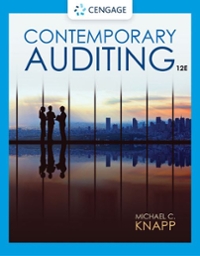In 1956, the Republic of the Sudan obtained its independence from Great Britain. Although unified, Sudan was
Question:
In 1956, the Republic of the Sudan obtained its independence from Great Britain. Although unified, Sudan was effectively two countries within one. Northern Sudan, home of the nation's capital, Khartoum, was controlled by Islamic fundamentalists, while southern Sudan was controlled by Christian fundamentalists. In 1989, a military coup led by General Omar Hassan al-Bashir, leader of the National Islamic Front, overthrew Sudan's central government and took control of Khartoum. Almost immediately, the new government imposed Islamic law or Shari'a on southern Sudan, triggering widespread violence between the Islamic-controlled Sudanese military and rebel forces organized by Christian leaders in southern Sudan. By the early years of the twenty-first century, the primary battleground in Sudan was the large western region of the country known as Darfur.
Various organizations, including the United Nations and the International Criminal Court, documented atrocities on a massive scale inflicted on the citizens of Sudan, principally residents of Darfur and southern Sudan. In 2008, for example, the Christian Science Monitor reported that as many as two million Sudanese had died as a result of those atrocities, while four million other Sudanese had been displaced from their homes.1 In June 2004, United Nations Secretary-General Kofi Annan and United States Secretary of State Colin Powell visited the war-torn country. During that visit, Annan referred to the ongoing civil war in Sudan as the worst humanitarian crisis facing the world, while Powell described the situation as a "humanitarian catastrophe."
Political leaders in numerous Western countries insisted that the Republic of the Sudan's government was responsible for the war crimes committed in Darfur and southern Sudan. Allegedly, that military dictatorship organized large bands of armed mercenaries or janjaweed to attack and wipe out entire villages in those regions of the country. The Sudanese government reportedly used revenues produced by the nation's large oil industry to finance this campaign of terror against its own citizens.
Governmental authorities and private interest groups across the globe undertook initiatives to end the widespread suffering in Sudan. Many of these efforts involved economic sanctions intended to limit the Sudanese government's ability to finance terrorist attacks on its own citizens. In 1998, President Bill Clinton imposed an economic embargo on Sudan that effectively prevented U.S. firms from engaging in commerce with Sudanese companies or the Sudanese government. During President Clinton's administration, the U.S. State Department also designated Sudan as a "state sponsor of terrorism" (SST). In addition, several states passed laws requiring state employee pension funds to divest themselves of investments linked to Sudan.
In 2004, a U.S. House of Representatives committee issued a report calling for the Securities and Exchange Commission (SEC) to require companies with securities listed on U.S. stock exchanges to disclose any business operations within, or other relationships with, nations identified as SSTs. The House committee maintained that such information qualified as "material information" under the far-reaching "full and fair disclosure" regulatory mandate of the SEC and thus should be disclosed to investors.
Questions
1. How does the SEC define “materiality”?
2. Do you agree with the assertion that any and all associations that SEC registrants have with SSTs qualify as “material information” for financial reporting purposes and thus should be disclosed in their SEC filings? Are there other “sensitive” or questionable business activities that SEC registrants should be required to disclose? Defend your answers.
3. Should the SEC have the authority to highlight or bring special attention to certain disclosures made by SEC registrants? Why or why not?
Step by Step Answer:






